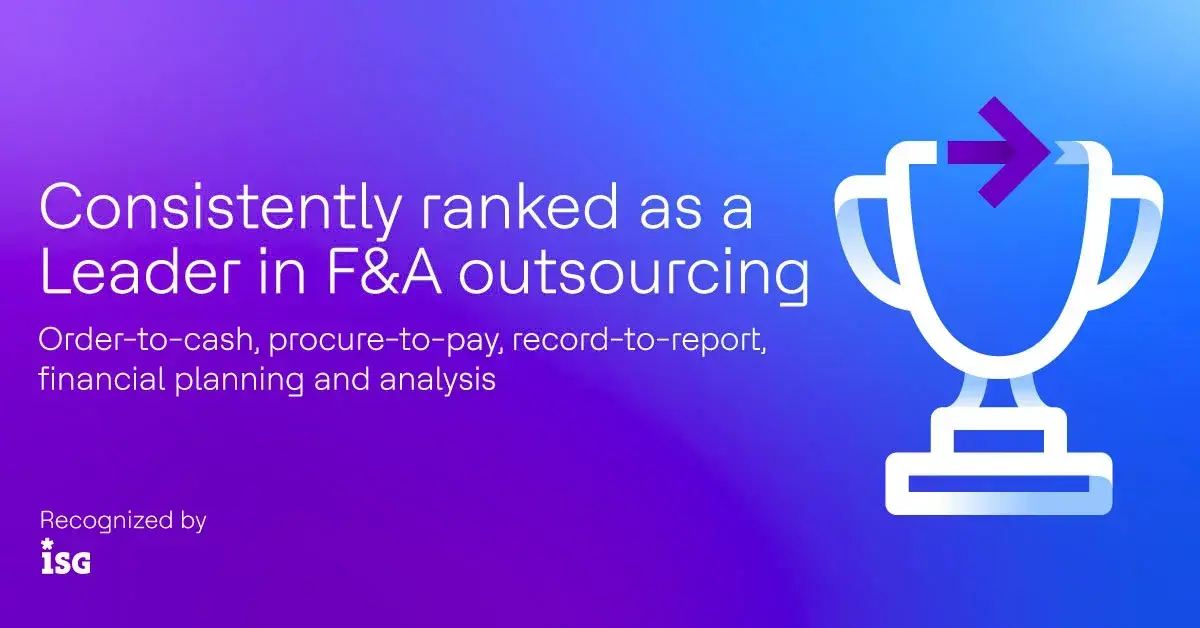The semiconductor industry is no stranger to challenges. In recent times, it has faced a perfect storm of disruptions, from the COVID-19 pandemic and GEO trade tensions to the Russia-Ukraine conflict. These unforeseen events have created a volatile environment where demand is soaring while the supply falls short. According to a report1 by IC Insights, the global semiconductor demand-supply gap is expected to widen to 20% in 2023, up from 15% in 2022.
On the other hand, an oversupply of chips, which is elevating inventories and reducing chip prices, is accelerating the decline of the semiconductor market this year. Global semiconductor revenue is projected to decline 11.2% in 2023, according to the latest forecast2 from Gartner, Inc. In 2022, the market totaled $599.6 billion, which was a marginal growth of 0.2% from 2021. As a result, semiconductor companies are grappling with cost and margin pressures that threaten their bottom lines.
The industry challenges: An in-depth look
The semiconductor industry is the backbone of the modern world, providing critical components for everything from smartphones to automobiles. However, the past few years have brought forth a series of challenges that have tested the resilience of this industry:
- Supply chain disruptions: A $100B quandary
After the disruption caused by the pandemic, the ongoing conflict in Eastern Europe further compounded the industry's supply chain challenges. Ukraine significantly produces critical raw materials for semiconductor manufacturing, including neon and palladium. Disruptions in the region have led to uncertainty and potential shortages in the supply of these vital materials. According to a report3 by the Semiconductor Industry Association, the global semiconductor supply chain disruption is costing the industry $100 billion per quarter.
- Cost pressures: Tariffs and energy costs
Deloitte4 reports the top 10 global chip companies' combined market cap is down 34% from $2.9 trillion in November 2021 to $1.9 trillion in November 2022. The trade tensions between the United States and China have directly impacted the semiconductor industry. Tariffs imposed on semiconductors and related equipment have increased the cost of production. The Russia-Ukraine conflict has had a broader impact on global energy prices. Semiconductor manufacturing is an energy-intensive process, requiring clean rooms and specialized equipment. Rising energy prices can significantly increase production costs, putting further pressure on semiconductor manufacturers' margins.
- Rising demand: A post-pandemic boom
The COVID-19 pandemic accelerated the adoption of remote work, e-learning and telehealth, driving demand for devices such as laptops, tablets and smartphones. These devices rely on semiconductors, leading to increased orders from semiconductor companies. Beyond the pandemic, several key sectors, including automotive (for electric vehicles and advanced driver-assistance systems), industrial automation and the Internet of Things (IoT), have experienced robust growth. These sectors heavily depend on semiconductors, further increasing demand.
- Talent shortage: A global race for expertise
In the semiconductor industry, a talent drought, intensified by global competition and spurred by rapid technological progress, presents a pivotal challenge. Specialized skills essential for chip design, materials science and manufacturing are in high demand yet in short supply. McKinsey5 has also projected a shortfall of about 300,000 engineers and 90,000 skilled technicians in the United States by 2030.
Emerging technologies like AI, 5G and autonomous systems amplify this scarcity, prompting a global talent race among semiconductor companies. With the industry evolving at breakneck speed, professionals must continually adapt, creating a demand for upskilling. Striking the balance between recruiting and retaining top talent while navigating this swiftly changing landscape remains an imperative for semiconductor firms to maintain their innovative edge.
These challenges have created a volatile environment in which semiconductor companies must operate. They must address supply chain vulnerabilities, manage increased production costs and meet surging demand while maintaining product quality and innovation.
The call for outsourcing technology: A strategic solution
In response to the multifaceted challenges that the semiconductor industry is facing, many forward-thinking companies are exploring strategies such as outsourcing technology to enhance operational efficiency and adapt to this rapidly changing landscape. Let's examine how business process outsourcing can play a pivotal role in overcoming these hurdles.
- Finance and accounting (F&A) outsourcing: Fueling financial agility
Finance and accounting outsourcing stands as an indispensable catalyst for the growth of semiconductor companies, especially for leaders driving strategic initiatives like CFOs. Outsourcing these functions offers strategic advantages in an industry fraught with cost pressures, supply chain disruptions and surging demand.
How F&A outsourcing helps:
- Leveraging cutting-edge technologies such as AI and intelligent automation, finance and accounting outsourcing enables substantial cost reduction, freeing up resources for strategic investments.
- Leading semiconductor firms have achieved remarkable results, reducing financial processing costs by up to 30% through outsourcing, which translates to redirected investments into R&D.
- Outsourcing fosters financial agility, which is critical for responding to unpredictable disruptions, as witnessed during recent supply chain challenges.
- Compliance and risk management expertise ensure adherence to industry-specific regulations, mitigating legal and financial risks.
- Scalability accommodates growth without the burden of fixed costs, positioning semiconductor companies to thrive in a dynamic and competitive landscape.
At HCLTech, we have successfully delivered large engagements across the globe by building resilient and future-ready finance and accounting value chains, delivering a 30-40% reduction in the cost of operations and improvement in metrics across all F&A functions. Some of these metrics include payment term rationalization, discount capture, first pass yield in invoice processing, nullifying duplicate payments, minimizing cycle time, reducing vendor queries and many more.

Learn more about our F&A Leadership rankings:
- Procurement outsourcing: Building supply chain resilience
Procurement outsourcing emerges as a strategic imperative for semiconductor companies grappling with the intricate web of supply chain challenges. Outsourcing procurement functions offers a lifeline in this high-stakes industry where a single component delay can disrupt production.
How procurement BPO helps:
- Semiconductor firms tap into the expertise of specialized providers to secure a robust and diversified supply chain network, mitigating the risks of supply disruptions.
- Practices such as on-shore and off-shore sourcing ensure a consistent flow of critical components, enhancing supply chain resilience.
- Procurement outsourcing optimizes supplier relationships, negotiates favorable terms and drives cost efficiencies, bolstering the industry's ability to weather supply chain storms.
From consulting to implementation, we at HCLTech provide our clients with agile, adaptable, integrated and sustainable supply chain management (SCM) solutions to address the changing paradigm, rising expectations and strict deadlines. Our SCM services and solutions cover core and strategic supply chain functions, enabling supply chain leaders to influence strategic decisions and transformation initiatives. For our clients across the globe, we have delivered a 30-40% reduction in the cost of procurement operations and 6-8% savings in annual addressable spending.
 Leaders in Digital Transformation and BPO Services
Leaders in Digital Transformation and BPO Services - Human resource outsourcing: The talent advantage
In an era characterized by talent shortages, global competition and the relentless march of technological advancement, human resource outsourcing (HRO) holds the potential to be a transformative force in the semiconductor industry.
How HRO helps:
- HR outsourcing streamlines resource optimization, enabling the efficient allocation of human capital and attention to strategic endeavors.
- Integration of advanced HR technologies enhances recruitment, talent management and workforce planning, which is critical in an industry where innovation depends on skilled professionals.
- Reduced operational costs allow semiconductor firms to invest more resources in research, development and innovation.
- In a fiercely competitive landscape where attracting and retaining top talent is paramount, HR outsourcing empowers semiconductor firms to pioneer breakthroughs and maintain a competitive edge.
At HCLTech, our HRO services and solutions serve enterprises across 80+ countries with local expertise in 25+ global and native languages. These services span across employee services, HR operations, payroll and compensation, performance and benefits, talent and learning and development.
Pioneering the future of outsourcing innovation with HCLTech
In conclusion, embracing outsourcing technology is not just a cost-saving measure but a strategic imperative in the dynamic semiconductor industry. As the industry evolves, those who harness intelligent automation, process excellence and global practices through outsourcing technology will find themselves better positioned to meet challenges head-on, ensuring continued innovation and competitiveness.
Our vision at HCLTech reflects having a Center of Excellence (CoE) for transformation which includes process intelligence, automation-led process transformation, analytics-led business outcome and significant employee enablement through technology.
We at HCLTech create space for you to concentrate on core superconductor innovation and manufacturing with extended support and transformation in the non-core functions like finance and accounting, procurement and supply chain operations, human resource operations as well as in the product support space.
References:
- https://www.marketresearchupdate.com/industry-growth/ic-report-2022-2027-360189
- https://www.gartner.com/en/newsroom/press-releases/2023-04-26-gartner-forecasts-worldwide-semiconductor-revenue-to-decline-11-percent-in-2023
- https://www.semiconductors.org/global-semiconductor-sales-units-shipped-reach-all-time-highs-in-2021-as-industry-ramps-up-production-amid-shortage/
- https://www2.deloitte.com/us/en/pages/technology-media-and-telecommunications/articles/semiconductor-industry-outlook.html
- https://www.mckinsey.com/industries/semiconductors/our-insights/how-semiconductor-makers-can-turn-a-talent-challenge-into-a-competitive-advantage


